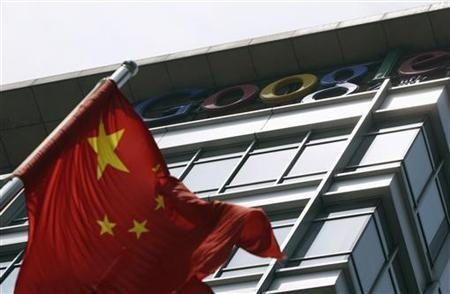Chinese software vulnerable to hackers: How long till LulzSec and Anonymous notice?

With news out that parts of China's networks are currently vulnerable to cyber attacks from hacker's, analysts have begun to speculate how long will it be until the hacker groups Anonymous and LulzSec take advantage.
The bug in China's software
A report from the U.S. Department of Homeland Security today revealed that parts of the software systems used by China to run its weapons, utilities and chemical plants systems suffer from an inherent bug in their coding.
The bug reportedly creates a crack in the systems cyber security that could potentially be exploited by hackers.
After the weakness was discovered DHS reportedly contacted China warning it over the bug in its software.
China are not the only country that could be affected. The software was designed by Beijing-based Sunway Force Control Technology Co. Sunway's products, while most widely used in China, are also used by certain Western companies -- meaning that they are just as vulnerable.
According to experts, the hole in security is so severe that a successful attack could potentially cause lasting damage on critical parts of China's infrastructure.
Sunway has since clarified that it has already developed software patches to plug the security holes.
Unfortunately, the company also admitted that it will take the software's users weeks, maybe months to install the new security fixes -- a rather large window of opportunity for any opportunistic hacker.
LulzSec and Anonymous
The hacker collectives LulzSec and Anonymous have both gained notoriety this year for perpetrating high-profile hacks and cyber attacks against numerous companies and government agencies.
Despite both having been born from the older hacking collective 4Chan both operate under very different principles.
Anonymous
The older group Anonymous, has always marketed itself as "hacktivist". The group in general targets organisations or companies it feels have done wrong.
Most recently Anonymous has targeted the Turkish government, protesting its continued censorship of the internet.
In a statement released earlier this year the group openly stated its motivation writing:
"We are anonymous. Over the last few years, we have witnessed the censorship taken by the Turkish government, such as blocking YouTube, Rapidshare, Fileserve and thousands of other websites.
"Most recently, the government banned access to Google services. These acts of censorship are inexcusable.
"The internet is a platform for freedom, a place where anyone and everyone can come together, discuss topics, and share information, without fear of government interference".
With China's propensity to block websites and ongoing feud with Google, it certainly wouldn't be beyond the realm of possibility for Anonymous to target China for similar reasons -- indeed swap Chinese for Turkish and the statement could be seen to ring equally true.
LulzSec
Despite originating from the same source as Anonymous, the hacker collective LulzSec operate under very different principles -- if any.
As the name would suggest -- Lulz being a reference to lolz which means lots of laughs -- LulzSec's primary motivation for its attacks seems to be simple entertainment.
While the group did originally claim that its attacks on Sony were a punishment for the company's extended PlayStation Network outage, it has since committed numerous hacks offering no reason past "just for Lulz".
Most recently the group has released the email, social networking and password information of 62,000 apparently innocent internet users, simply because fans on its Twitter page asked them to.
Similarly, earlier this week LulzSec hacked the games company Bethesda Sofwork's website just to win an argument on Twitter.
The group has already shown willingness to target high-profile government departments and agencies. Only this week it reported successful attacks on the U.S. Senate and CIA's websites.
With this in mind, it seems highly unlikely that the group would pass up the opportunity to target one of the most humourless regimes in the world in its moment of weakness.
© Copyright IBTimes 2025. All rights reserved.





















